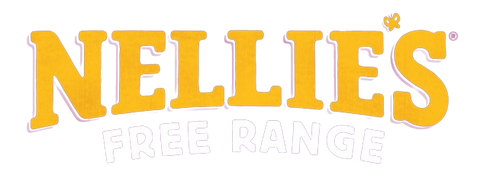
What Are B Corp Brands?
In 2013, we became a Certified B Corporation (aka Benefit Corporation), joining 963 B Corporations in 32 Countries across 60 Industries. B Corp brands believe in using business as a force for good. Today, the B Corp community has expanded to include more than 8,000 companies across more than 150 industries, operating in more than 80 countries. The B Corp movement has grown to not only influence the global economy, but create a significant social and environmental impact on future generations as well.
How is a B Corp Different Than a Corporation?
Traditional corporations measure their success by the profits they earn for shareholders—but B Corporations (aka Benefit Corporations) are committed to creating benefits for all stakeholders (workers, suppliers, customers, community, and the environment). They follow three guiding principles, Social Responsibility, Sustainability, and Profitability, in all the decisions they make as a company.
History of the B Corporation Movement
The B Corp movement began in 2006, spearheaded by the nonprofit organization B Lab. The founders, Jay Coen Gilbert, Bart Houlahan, and Andrew Kassoy, envisioned a new sector of the economy that uses business as a force for good. They aimed to redefine success in business by not only focusing on profit but also on the positive impact companies can have on society and the environment. Its third-party certification program verifies sustainable business practices in the same way that Fair Trade USA certifies coffee and Humane Farm Animal Care certifies that our free range eggs are produced humanely.
The first cohort of certified B Corporations was announced in 2007, and since then, the movement has grown to include thousands of companies across the globe. These companies are committed to meeting rigorous standards of social and environmental performance, accountability, and transparency.
B Corp Certification Standards
To be certified, we must regularly earn a minimum score on B Lab’s B Impact Assessment—a comprehensive set of standards that measure our overall social and environmental performance, set by its Standards Advisory Council.
To become a certified B Corp, a company must meet high standards in several key areas:
- Social and Environmental Performance: Companies must complete the B Impact Assessment, which evaluates their impact on workers, customers, the community, and the environment. A minimum score of 80 out of 200 points is required for certification.
- Legal Accountability: Companies must integrate B Corp commitments into their governing documents, ensuring that they consider the impact of their decisions on all stakeholders, not just shareholders.
- Transparency: Certified B Corps must make their B Impact Report transparent and accessible to the public, showcasing their performance in various impact areas.
- Ongoing Improvement: Certification is not a one-time achievement. B Corps must recertify every three years, demonstrating ongoing commitment and improvement in their impact.
Learn more about the B Corp certification process and Assessment standards here.
B Lab's Standards for the Food Industry
Here's how B Lab's standards specifically apply to the food industry:
-
Environmental Impact:
- Sustainable Sourcing: Companies are assessed on their sourcing practices, including the use of organic, non-GMO, and locally sourced ingredients.
- Resource Management: Efficient use of water, energy, and other resources is evaluated, along with efforts to reduce waste and emissions.
- Biodiversity: Practices that support biodiversity, such as crop rotation and habitat conservation, are considered.
- Social Impact:
- Labor Practices: Fair labor practices, including fair wages, safe working conditions, and employee benefits, are crucial.
- Community Engagement: Companies are assessed on their contributions to local communities, such as supporting local farmers and engaging in community development projects.
- Product Impact:
- Health and Nutrition: The nutritional value of products and efforts to promote healthy eating are evaluated.
- Transparency: Clear labeling and transparency about ingredients and sourcing practices are important.
- Governance:
- Ethical Practices: Companies must demonstrate ethical business practices and accountability in their operations.
- Stakeholder Engagement: Involvement of stakeholders in decision-making processes is assessed.
- Customer Impact:
- Customer Education: Efforts to educate customers about sustainable and ethical food choices are considered.
- Product Safety: Ensuring the safety and quality of food products is a key standard.
By meeting these standards, B Corps in the food industry demonstrate their commitment to using business as a force for good.
How Nellie's Free Range Practices Social Responsibility, Sustainability, and Profitability
Nellie's Free Range is proud of its B Corp status and is dedicated to balancing purpose and profit while making a positive impact on all stakeholders. Our company's business model emphasizes the well-being of:
- Workers: We ensure fair wages, safe working conditions, and opportunities for professional growth. Our commitment to employee well-being is reflected in our comprehensive benefits and supportive workplace culture.
- Suppliers: We partner with suppliers who share our values of sustainability and ethical practices. By fostering long-term relationships, we ensure that our supply chain is responsible and transparent.
- Customers: We prioritize transparency and education, providing our customers with information about our production practices and the benefits of choosing free-range eggs. Our commitment to quality and sustainability is evident in every carton of eggs we sell.
- Community: We engage with local communities through outreach programs and partnerships with nonprofits. Our initiatives focus on food security, education, and environmental conservation.
- Environment: Sustainability is at the core of our operations. We implement eco-friendly practices such as reducing waste, conserving water, and minimizing our carbon footprint. Our free-range farming practices promote biodiversity and soil health for a net-positive environmental impact.
By integrating these practices into our business model, Nellie's Free Range not only meets the standards of a B Corp but also leads by example in the food industry, demonstrating that profitability and responsibility can go hand in hand.
Nellie’s Free Range Means B(usiness)
The Certified B Corporation seal on our cartons is your guarantee that we aren’t just talking about running our business in a socially and environmentally conscious way—we are living those values and always will. It’s just—well, good business!
To find out more about B corporations and the standards we follow, visit www.bcorporation.net.











